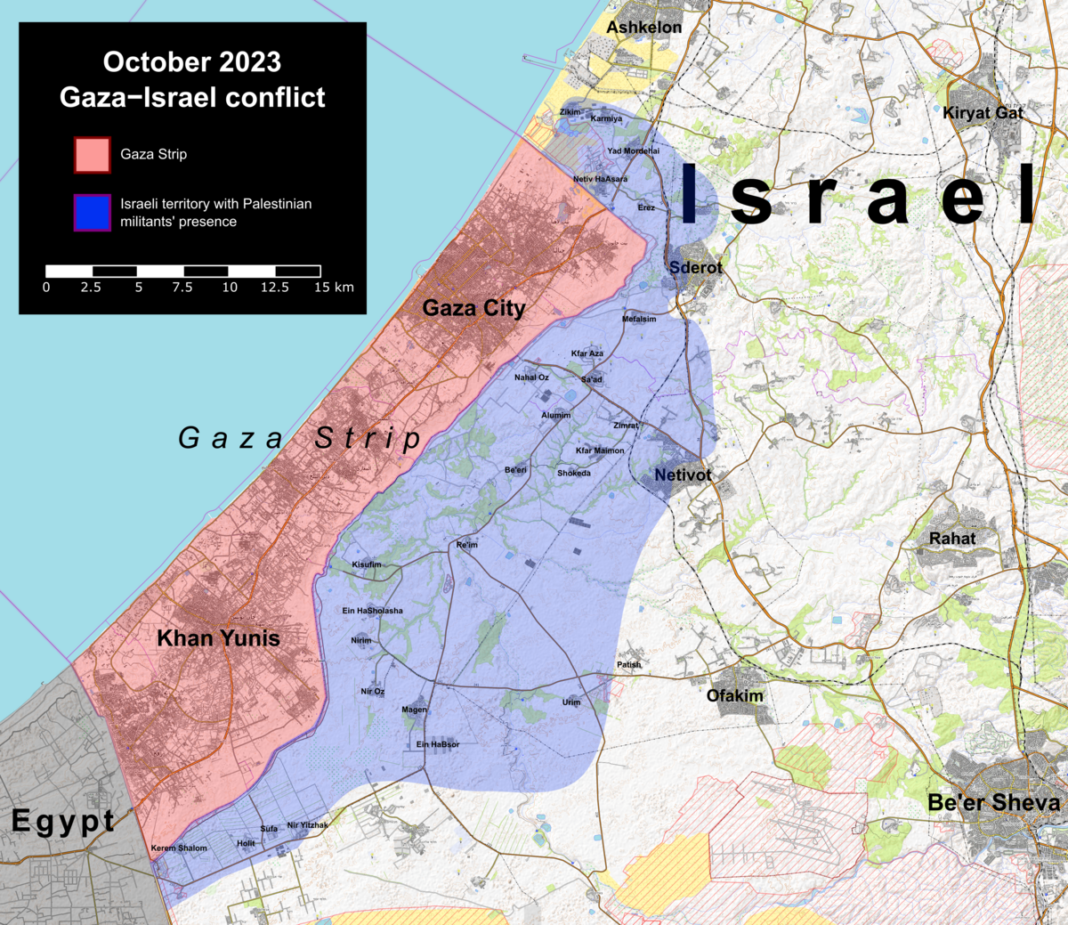By: Ahmed Fathi
New York (INPS Japan/ATN): In recent days, the world has witnessed a troubling escalation of tensions in the Middle East, as Hamas, affiliated with the Muslim Brotherhood, launched rockets towards Israel and engaged in the kidnapping of Israeli citizens and soldiers from nearby cities. This abrupt and violent turn of events resulted in the tragic loss of 600 Israeli lives, primarily attributed to an intelligence failure on the part of Israeli security agencies. However, the rapid containment of the situation saw the Israeli Air Force launching strikes on Hamas positions in Gaza, leading to the deaths of hundreds of Palestinians, possibly at a ratio of 1 to 10. Regrettably, this has been hailed as a significant victory by Hamas and its demagogue supporters, with scant regard for the lives of innocent Palestinians.
The pressing question on everyone’s mind is: What motivated Hamas to escalate the situation to this extent? From my perspective, Hamas appeared to launch the attack by land, air and sea with the full knowledge that such actions would be perceived as acts of war against Israel, with little consideration for the devastating consequences. In the broader context of the Middle East, it seems that the primary aim was to disrupt any progress in the normalization and cooperation talks between Saudi Arabia and Israel, under the sponsorship of the United States. These talks had been making substantial headway, particularly after the United States extended security guarantees to the Arab Kingdom, akin to those provided to Japan and South Korea which they are second to NATO allies, and pledged assistance in Saudi Arabia’s peaceful nuclear program. This development posed a significant threat to the Islamic Republic of Iran, as the application of these American guarantees could potentially undermine Iran’s regional influence in favor of Saudi Arabia.
Moreover, the vast network of business enterprises supporting the Palestinian cause and resistance now finds itself in jeopardy. This empire encompasses a wide range of economic, financial, commercial, media, cultural, and research-related endeavors worldwide. These endeavors have been instrumental in supporting the Palestinian cause, attracting funding and donations, and involving themselves in real estate ventures, financial investments, and commercial enterprises. The cumulative value of these enterprises likely reaches into the hundreds of billions of dollars, and they can aptly be described as the “Business Empires of the Palestinian Cause and Struggle.”
In the realm of international diplomacy, reactions in the capitals of global decision-makers have been diverse:
– The United States, as anticipated, has affirmed its unwavering support for Israel, categorizing Hamas as a terrorist organization. President Joseph Biden has declared the United States’ readiness to provide Israel with whatever resources it requires to safeguard its security. Nonetheless, President Biden’s capacity to take swift action may be constrained, given the current absence of a Speaker of the House of Representatives, which is expected to take time to rectify. This could potentially delay the immediate allocation and delivery of new weapons to Israel.
– President Biden is likely to turn to Egypt and Qatar, both of which have established strong relations with Hamas. Qatar, in particular, has been a consistent financial supporter of Hamas, funding not only the organization itself but also Palestinian television channels, newspapers, research centers, and more. This grants Qatar a significant level of influence. Egypt, on the other hand, maintains robust security ties with Hamas through its intelligence agency, responsible for communications and negotiations with the group. Additionally, Egypt serves as the critical gateway for Gaza to the rest of the world. The specific roles assigned to these nations in resolving the crisis remain to be seen.
– The European Union has issued a concise statement condemning Hamas and underscoring Israel’s right to self-defense.
– The United Nations, led by Secretary-General Antonio Guterres, has unequivocally condemned Hamas attacks on Israel and called for diplomatic efforts to avert a broader conflagration. A similar statement condemning Hamas was also issued by the President of the UN General Assembly. The UN Security Council has announced plans to convene a closed consultation session in New York on Sunday prior to the start of the meeting Israel’s Ambassador to the UN, Gilad Erdan briefed the press and answered few questions of the press
and later the Palestinian Ambassador, Riyad Mansour read a statement and refused to take questions.
As we look ahead, it is disheartening to admit that finding a glimmer of hope amid this crisis seems increasingly elusive. While Hamas leaders are either in hiding, have departed the Gaza Strip for neighboring countries, or are fleeing on boats in the Mediterranean, it is the innocent Palestinian citizens who will bear the brunt of this escalating conflict. Regrettably, the voices of Arab supporters may continue to hail what they perceive as a divine victory, even as the situation threatens to erupt into a devastating inferno in the days to come.
In the midst of this complex and volatile situation, we can only hope for a swift and peaceful resolution that will spare the lives of innocent civilians and bring stability to a region long plagued by conflict.
INPS Japan/ ATN
Original article:https://www.amerinews.tv/single-post/the-high-stakes-game-of-geopolitics


